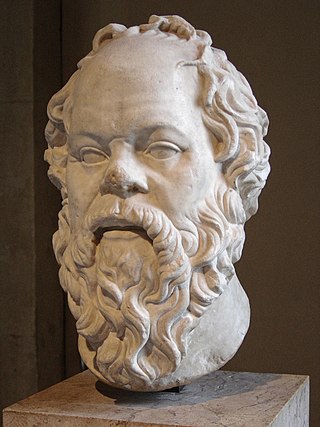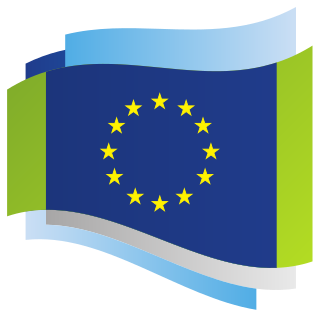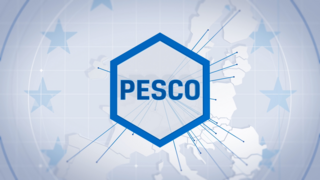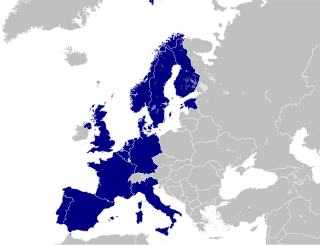
The SOCRATES programme was an educational initiative of the European Commission; 31 countries took part. The initial Socrates programme ran from 1994 until 31 December 1999 when it was replaced by the Socrates II programme on 24 January 2000, which ran until 2006. This, in turn, was replaced by the Lifelong Learning Programme 2007–2013.

The AEGEE, or Association des États Généraux des Étudiants de l'Europe, known as European Students' Forum in English, is the largest transnational, interdisciplinary student organisation in Europe.

The Erasmus Programme is a European Union (EU) student exchange programme established in 1987. Erasmus+, or Erasmus Plus, is the new programme combining all the EU's current schemes for education, training, youth and sport, which was started in January 2014.

The Lifelong Learning Programme 2007–2013 was the European Union programme for education and training.

The European Defence Agency (EDA) is an agency of the European Union (EU) that promotes and facilitates integration between member states within the EU's Common Security and Defence Policy (CSDP). The EDA is headed by the EU High Representative for Foreign Affairs and Security Policy, European Commission’s Vice President (HR/VP), and reports to the Council. The EDA was established on 12 July 2004 and is based in Brussels, Belgium, along with a number of other CSDP bodies.
In the European Union education is at the responsibility of its Member States and their Ministries of education that they have; in such, the European Union institutions play only a supporting and overseeing role. According to Art. 165 of the Treaty on the Functioning of the European Union, the Community
shall contribute to the development of quality education by encouraging cooperation between Member States, through actions such as promoting the mobility of citizens, designing joint study programmes, establishing networks, exchanging information or teaching languages of the European Union. The Treaty also contains a commitment to promote life-long learning for all citizens of the Union.
College transfer is the anticipated movement students consider between education providers and the related institutional processes supporting those secondary and post-secondary learners who actually do move with completed coursework or training that may be applicable to a degree pathway and published requirements.

The European Security and Defence College (ESDC) is an EU body embedded in the External Action Service (EEAS) of the European Union (EU) that provides training and education at EU level in the field of the Common Security and Defence Policy (CSDP), which is part of the EU's Common Foreign and Security Policy (CFSP). The ESDC has limited legal capacity.
University Mobility in Asia and the Pacific (UMAP) is a voluntary regional association of government, non-government and/or university representatives of the higher education sector established in 1993 to enhance cooperation and exchange of people and expertise through increased mobility of higher education students and staff. UMAP has been endorsed by Asia-Pacific Economic Cooperation and member countries are implementing UMAP projects.

PLOTEUS is an acronym of Portal on Learning Opportunities Throughout European Space, meant to connote πλωτηρ (ploter) which means "navigator" in ancient Greek. It is a European Union web portal, coordinated by the European's Commission Directorate-General for education and culture, that aims to help citizens find out about education and training opportunities, throughout the countries belonging to the European Union, Switzerland, Iceland, Norway and Turkey, though the latter did not participate in PLOTEUS at its launch, as it was not a member of the Leonardo da Vinci programme yet. According to France 5, the portal offers an "easy access" to an "excellent source of information" from primary school to postgraduate education. PLOTEUS has been prioritised as a "project of common interest" by the European Commission. The European Parliament and the European Council have confirmed in 2006 their "support for transnational web-based services such as PLOTEUS". The portal is run by the Euroguidance network, financed by the Leonardo da Vinci programme, and is interconnected with EURES, the European Commission's portal on job mobility information. Both PLOTEUS and EURES are considered as examples of "pan-European services". After the launch of PLOTEUS and EURES in 2003, the Bologna process drive to favour student mobility in Europe wa further expressed in 2004 by the launch of the Europass program, which is accessible from the EURES portal, as well as PLOTEUS.

The Permanent Structured Cooperation (PESCO) is the part of the European Union's (EU) security and defence policy (CSDP) in which 26 of the 27 national armed forces pursue structural integration. Based on Article 42.6 and Protocol 10 of the Treaty on European Union, introduced by the Treaty of Lisbon in 2009, PESCO was first initiated in 2017. The initial integration within the PESCO format is a number of projects which launched in 2018.

The Global Governance Institute(GGI) is an independent, international non-profit think tank based in Brussels. It was founded in 2010 and brings together senior policy-makers, scholars and practitioners in order to devise, strengthen and improve forward-looking approaches to global governance through research, education and policy advice.
Vidzeme University of Applied Sciences is the higher education establishment in Valmiera, Latvia. It was founded in 1996 and now it has around 800 students.
Erasmus+ is the European Commission's Programme for education, training, youth, and sport for the period 2021–2027, succeeding the previous programme (2014–2020). As an integrated programme, Erasmus+ offers more opportunities for the mobility of learners and staff and cooperation across the education, training, and youth sectors and is easier to access than its predecessors, with simplified funding rules and a structure that aims to streamline the administration of the programme. The new Erasmus+ Program, running from 2021–27, is more digital, inclusive and innovative, as well as greener.
An academic mobility network is an informal association of universities and government programs that encourages the international exchange of higher education students.

NATO Defense College (NDC) is the international military college for North Atlantic Treaty Organization countries. It is located in Rome, Italy.

The LudovikaUniversity of Public Service is a higher educational institution in Budapest, Hungary. Established in 2012, it is one of the youngest universities in Central and Eastern Europe; however, its faculties as former independent colleges look back much earlier.

Military Mobility is one of the initial projects launched under the European Union's (EU) Permanent Structured Cooperation in Defence (PESCO) facility. It is commonly termed a "Military Schengen" as it is inspired by the EU's Schengen Area, but designated to aid the free movement of military units and assets throughout Europe via removal of bureaucratic barriers and improvement of infrastructure.

The European Intervention Initiative (EI2) is a joint military project between 13 European countries outside of existing structures, such as the North Atlantic Treaty Organization (NATO) and the European Union's (EU) defence arm. EI2 is planned to operate a "light" permanent secretariat based on the network of military liaison officers with the French defence ministry.

This article outlines the present structure of the European Union's Common Security and Defence Policy (CSDP), a part of the Common Foreign and Security Policy (CFSP) based on articles 42–46 of the Treaty on European Union (TEU). Article 42.2 of TEU states that the CSDP includes the 'progressive framing' of a common Union defence policy, and will lead to a common defence, when the European Council of national heads of state or government, acting unanimously, so decides.
















